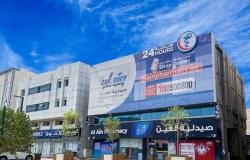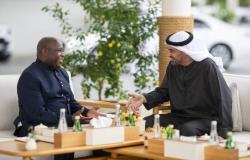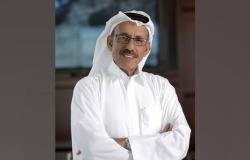Headline: Gargash Calls for a Reset on the Palestinian Question: Pragmatism, Security, and a Viable State
Meta Description: UAE presidential adviser Anwar Gargash urges abandoning maximalist narratives on the Palestinian issue, calling for a pragmatic path that balances Israel’s security with the establishment of a viable Palestinian state.
Lead
In a pointed intervention that could reshape regional diplomacy, Anwar Gargash—diplomatic adviser to the UAE president—called for a radical shift in how the Middle East approaches the Palestinian question. Speaking at the Reuters NEXT Gulf Summit in Abu Dhabi, Gargash argued that decades-old “maximalist” positions are no longer valid, urging regional and international stakeholders to pursue realistic, implementable steps that deliver both security for Israel and genuine state-building for Palestinians.
Why It Matters
For years, negotiations have stalled amid cycles of violence, settlement expansion, fragmentation in Palestinian politics, and waning international bandwidth. Gargash’s remarks are notable for reframing the conversation away from rhetorical absolutes toward pragmatic deliverables that could rebuild trust and momentum. His comments underscore the UAE’s broader stance: de-escalation, regional connectivity, and durable solutions that temper ideology with practical outcomes.
Key Messages from Gargash
- Maximalist narratives have failed: The insistence on all-or-nothing positions has produced paralysis, not progress. Gargash urged stakeholders to adopt a realistic horizon that prioritizes incremental gains.
- Dual imperatives: Any path forward must pair Israel’s legitimate security needs with credible, irreversible steps toward establishing a viable, contiguous Palestinian state.
- Diplomacy over escalation: Gargash emphasized ceasefire frameworks, humanitarian access, and political re-engagement as prerequisites for rebuilding confidence and reconstituting a diplomatic track.
- Regional role: Arab states, including the UAE, can help convene, fund, and sequence reforms, economic relief, and institution-building—provided all parties commit to a political horizon.
The Statehood Track: From Abstraction to Roadmap
Gargash’s call suggests moving from vague endorsements of a two-state outcome to an operational roadmap with measurable milestones. Such a roadmap could include:
1) Security De-escalation: Sustained ceasefire arrangements, demilitarization steps by armed factions, and verifiable mechanisms to curb rocket fire and militant activity, paired with strict limits on settlement expansion and settler violence.
2) Governance and Reform: Technocratic interim governance backed by Arab and international oversight to unify Palestinian institutions, combat corruption, and prepare for credible elections in due course.
3) Economic Stabilization: Rapid-impact projects in energy, water, housing, and healthcare alongside corridor-based trade facilitation that tangibly improves daily life and reduces incentives for conflict.
4) International Guarantees: A contact group of key Arab states, the United States, the EU, and UN agencies to underwrite security and political benchmarks, including timelines for recognition steps tied to performance.
Balancing Security and Rights
Gargash stressed that Israel’s enduring security concerns cannot be wished away, particularly after years of cross-border attacks and regional proxy dynamics. Equally, denying Palestinians a pathway to sovereignty will perpetuate instability. The balance, he argued, lies in sequencing: lock in security and de-escalation while opening irreversible tracks toward statehood—border delineation, movement and access, and administrative continuity across the West Bank and Gaza.
Humanitarian Imperatives
With recurrent humanitarian crises in Gaza and strains in the West Bank, Gargash advocated expanding aid corridors, protecting civilians, and restoring essential services as non-negotiable pillars of any diplomatic process. Humanitarian relief, he argued, should not be held hostage to political bargaining; rather, it should create the space for political compromise.
Regional and International Context
The UAE’s posture builds on normalization dynamics that aim to reduce conflict spillovers and broaden economic integration, while insisting that normalization must be compatible with a credible political horizon for Palestinians. Gargash’s remarks also align with a growing chorus in Western and Arab capitals that the status quo is untenable.
What to Watch Next
- Whether a structured ceasefire can be linked to political benchmarks and settlement restraint.
- If Arab partners coalesce around a joint plan for Palestinian institutional reform and reconstruction.
- The emergence of a contact group capable of offering security guarantees and economic incentives to both sides.
- Concrete steps toward restoring Palestinian governance continuity between Gaza and the West Bank.
Bottom Line
Gargash’s message is a call to trade absolutes for outcomes. By marrying Israel’s security with a viable, sovereign Palestinian state through staged, guaranteed steps, the region can move beyond decades of impasse toward a sustainable peace architecture.
Image Caption: Anwar Gargash speaks during the Reuters NEXT Gulf Summit in Abu Dhabi, calling for a pragmatic reset on the Palestinian issue.
Source: Reuters interview and remarks at Reuters NEXT Gulf Summit, Abu Dhabi, Oct. 22, 2025.





